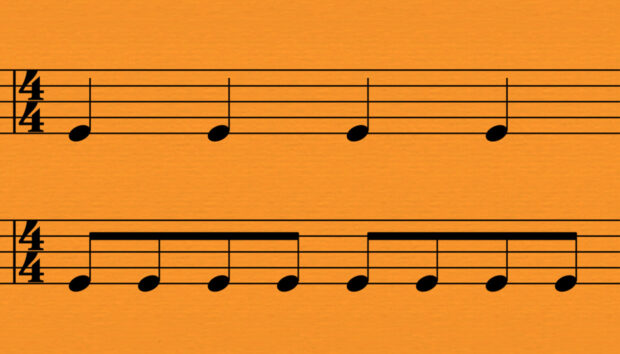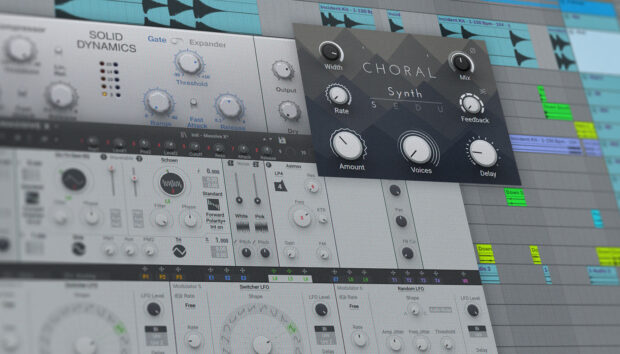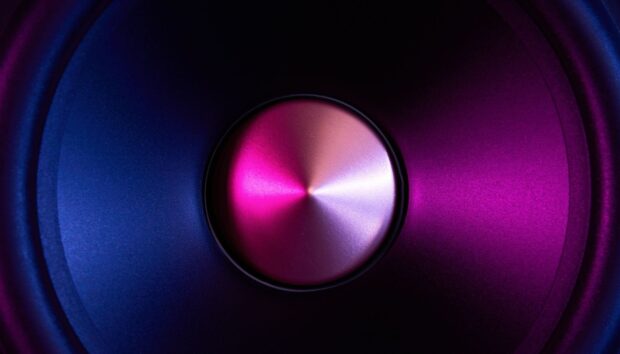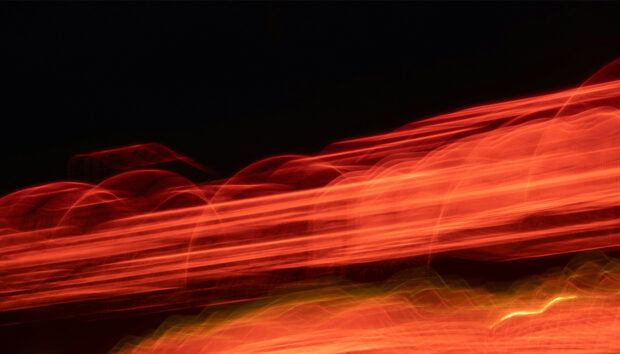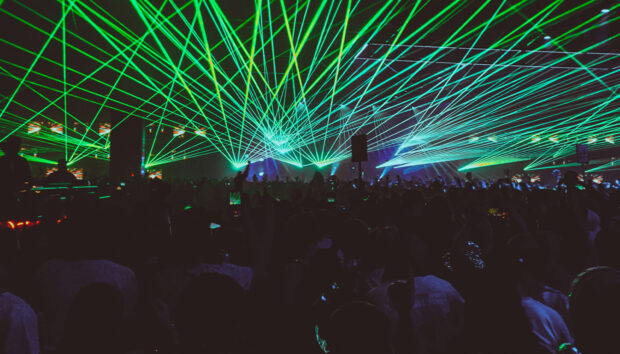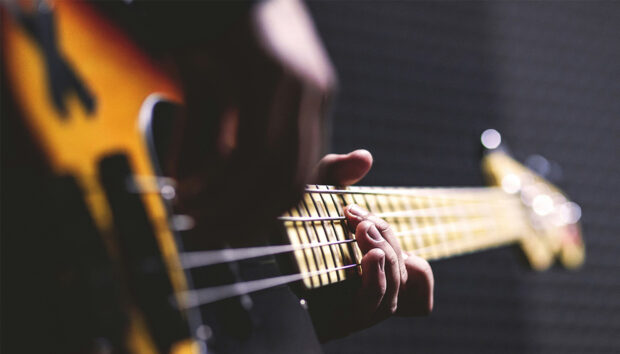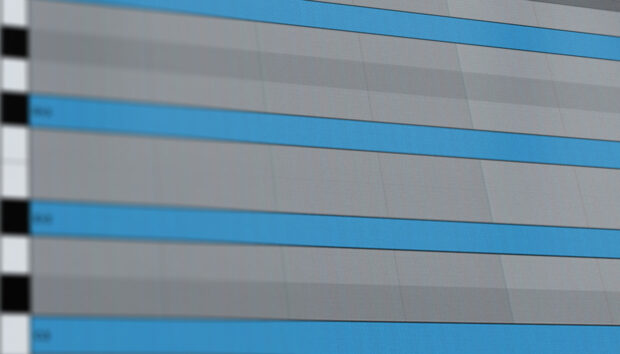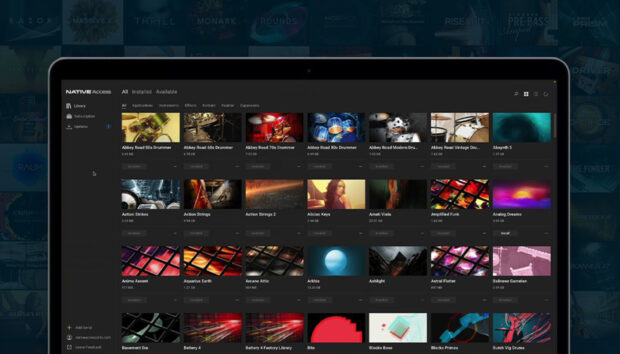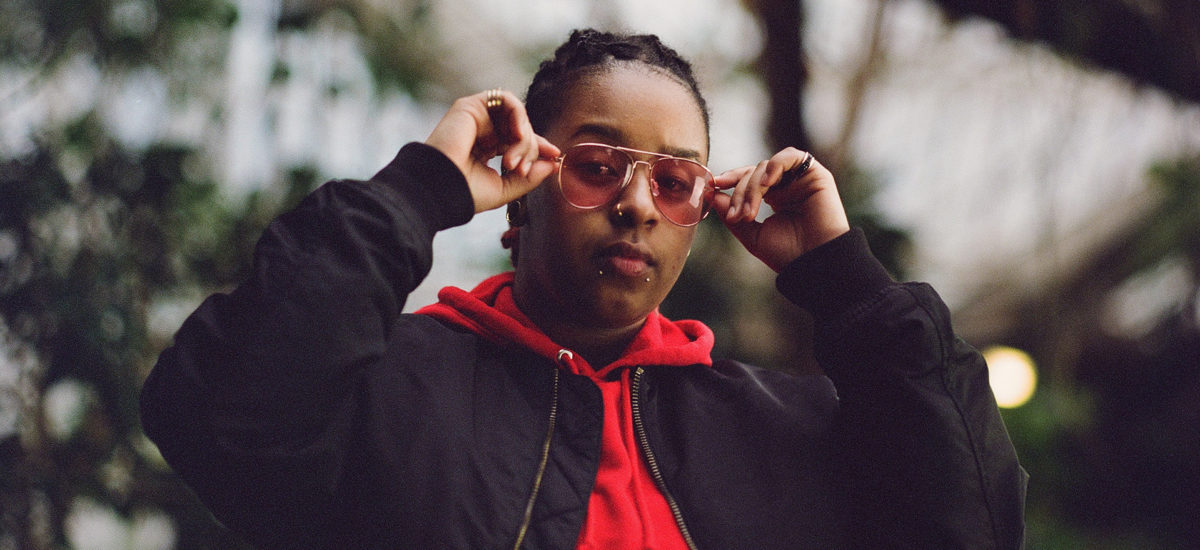
Self-taught DJ, producer and beat-boxer, Bamz is an inspiration for anyone wanting to teach themselves the art of making music. While acting as Nadia Rose’s tour DJ, the 21 year old South Londoner has also just recently her first EP Buggin’. Native Instruments caught up with Bamz at the Native Sessions a few months back to talk about her studio setup, the way she integrates her various musical talents, and where she thinks production and DJing is heading in the near future.
What comes first when making a beat, the inspiration and vibe or the audience and consumer?
I go with the vibe. If I feel the vibe in my head and I’m feeling the rhythm then I’ll just go for it. I tend not to think about the consumer first because it stumps what I’m doing. If it ends up being great for consumers then that’s a double win for me.
OK, so take us through the process.
When I start building a beat I select my recently used plug-ins – that’s usually either Kontakt, Massive, Alchemy by Logic, VXS24 by Logic, or Battery – and then I mess around with the sounds. I’ll try to match the vibe and the sound that’s in my head with a sound that’s within one of those plug-ins. I record the loop, get some drums going behind it – just a basic drum pattern – and then by the time I’ve caught the rhythm and the structure of that particular loop I add more percussive elements and more ghost-notes just to give it that bounce and that swing.
I gradually build up the loop – from 4 bars to 8 bars to 16 bars. I build on the momentum and gradually work around the concept by adding little sounds here and there to increase the dynamic throughout the song as opposed to leaving the sound as it is and looping it over and over again. It’s very important for me to create a sense of journey and story within my music and not feel like it needs to be complemented by an artist.
Going back to your previous question, with some instrumentals you can already hear the artist on it, and you know how the structure’s going to be. You’ve almost catered that concept for an artist of some sort. Making an instrumental and just keeping it there, it’s like you’ve built that story for yourself. Who knows, someone might come along and add that magic touch to it and it makes everything 100%, but you’ve got to create that dynamic first in the music.
You’re now both a music producer and a DJ, as well as also being very young – how did it all start and how have you gotten to where you are right now?
I got into producing at the age of 10 due to my beat-boxing background. I always knew that I had a love for rhythm and structuring beats and stuff like that, but obviously at six you don’t really know where to go. My mum’s friend gave me FL Studio, and then a couple of years later I went onto the DAW Reason and then later Logic, a DAW I’m still using today.
I’ve always had an interest in doing that because it goes hand-in-hand with production. I think I got my first pair of CD decks when I was fourteen. Honestly, I didn’t enjoy using them at first because I didn’t know how to use them. Overtime I’ve gotten new controllers and taken DJ crash courses here and there.
And then Nadia – I’m the tour DJ for Nadia Rose – when her career started kicking off I literally had to wear the hat of being a DJ because she needed one. Since then everything has just been writing itself. Thankfully I’ve been getting to do some more solo gigs as well as touring the world with Nadia. It’s been a sick journey.
And what are you using right now with Logic?
I’m using the Komplete Kontrol Keyboard S61. It’s well integrated with Logic X so you can actually mix down and select the instrument channel straight from the keyboard as opposed to using your mouse and computer keyboard, which is a really nice feature because you can operate making your music just from one device as opposed to you having to alternate. As well as that, the graphics on the actual keyboard is really nice. The keys are great to use when creating loops and melodies and playing instrumentation. I’m really enjoying it.
When creating loops and melodies, how do you go about picking samples?
I definitely incorporate one of the Native Instruments plug-ins in every song that I make. I alternate between picking external drum samples to make a loop and then I might mix it with using drum samples from Battery, Kontakt… but with the melodic stuff I use a lot of Kontakt for string and orchestral sounds, horns etc. to build atmospheres as well. I’m a big fan of Massive as well, and it has become one of my go-to Native Instruments synthesizers recently. It’s got so many cool sounds from so many different genres. I’ve enjoyed experimenting with them, and combining them with some of the stock sounds from Logic and other plug-ins as well.
You said DJing and production go hand-in-hand. How does that work from a technical standpoint?
When you think about music production and playing it out in clubs – depending on what genre you’re making – if you are DJing then you do have to pay attention to what styles the crowd resonates with: what gets them moving, what makes them shout, what makes them come up to the decks and say “yeah pull up that tune”. It’s really important to take note of those things, otherwise if you are making music and want it to be played out in the clubs regularly, you’re not really going to know how it’s going to be received.
It’s good to be be analytical when you’re in those club situations so you can take it back with you and make your productions. You need to observe how people react to your songs and also, how they react to other people’s songs and what you want to incorporate into your music to ensure that you get that reaction.
As well as that, it helps you in terms of building your own progression within your productions. What drops make people go mad or quiet? Vocal samples, basslines, and all of that stuff, it really does go hand-in-hand. As well as that, there are a lot more DJs who are using actual hardware along with using decks. I eventually would like to use Maschine alongside the Pioneer CDJs to give more of a live performance as opposed to just playing a song on each deck and just mixing them. I want to put on more of a show as opposed to just going out there and spinning records.
The music culture is definitely changing with the new hardware that’s being introduced into the world. It’s really cool, it’s developing some really great musicians and artists.
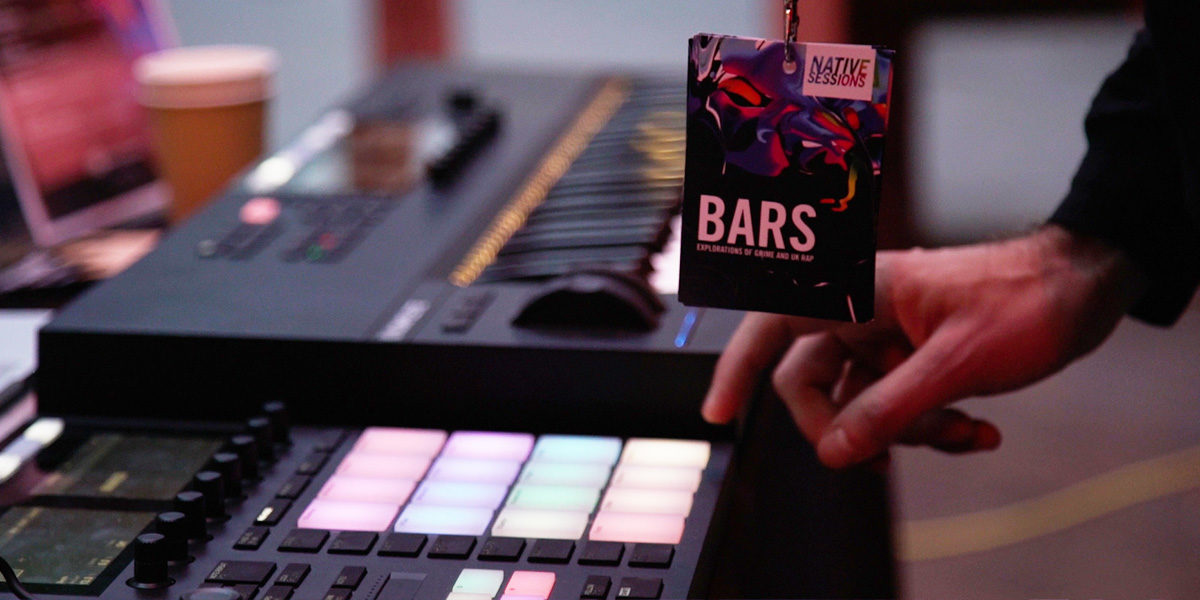
I read that you would have liked to have worked with Aaliyah and Left-Eye. What about those artists and that era, do you miss? Do you feel they would have appreciated the hardware we have now?
I feel that in the ‘90s era, it was easier to incorporate your dialect, colloquialisms, surroundings and the things that you’re going through, into your music. I feel like people appreciated the people who were different back then. Artists like Left-Eye, Aaliyah, Missy Elliot, Da Brat, all had something different but they were all relevant at the time. I feel hardware such as Maschine would have been well received because the ’90s really demonstrated DIY culture. When we think about it, hardware like Maschine has taken inspiration from MPCs and stuff like that. It wouldn’t be so alien to them. It’s just the modern technology – linking it up to the laptop and stuff – that they might have found a bit ‘wow’ but would have definitely been on board with it.
We have come from a culture where people were making songs from a street corner with no instruments. They were beat boxing, they were rapping, they were doing acapella, breakdancing and all of that stuff. If they had the equipment that we have now, they would have made a huge impact on the music industry. They still have, but just matching it up with our modern technology, it would have been a great thing to see. The live performances, the lyricists that we had back in the day, the vocalists, even just down to the production, a lot of people would have liked using things like this.
The thing with hardware, such as Maschine, is It gives artists a lot of power and a chance to be involved in their productions. When I think of people like Lauren Hill and Donell Jones, people who actually play instruments as well as do vocals, they are the type of artists that I can imagine using hardware now, because it just gives you so much creative freedom.
You’ve performed on really big stages like Wireless and Glastonbury. How did it feel to be placed on huge stages at such a young age? What did you learn from it and what’s next?
[Laughs] It was crazy! Wireless definitely helped me grow in terms of my attitude towards things and where I really wanted to end up and it made me take things a lot more seriously. Glastonbury incorporated everything I had learnt from Wireless, and we were just able to bang it out and enjoy it really. I really enjoyed it and I had great feedback from everyone so yeah that was cool. I’m hoping that this year will bring more collaborations, more releases, and positivity.
You can also check out BAMZ’ contribution to Native Sketches here.
photo credits: Sam Cooper








